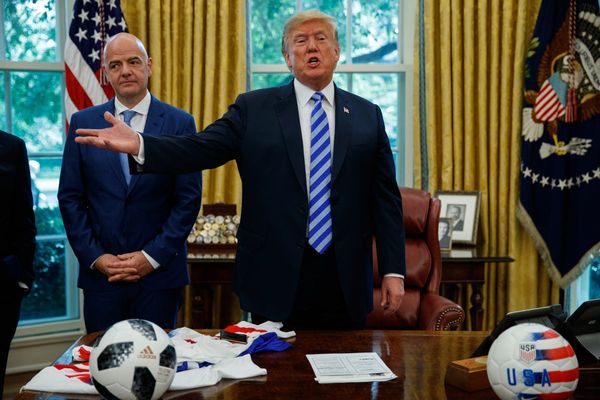
U.S. Sen. Dick Durbin, D-Ill., has the chance to advance one of the most significant pieces of First Amendment legislation in modern times.
The U.S. House of Representatives unanimously passed the Protect Reporters from Exploitative State Spying (PRESS) Act in September. The PRESS Act would bar the government from seizing records from journalists or their phone and internet providers except in a few emergency situations.
Now, as chair of the Senate Judiciary Committee, Durbin can “hotline” the bill to receive a Senate vote before the lame duck session ends in January. Similar legislation has fizzled over the years, but this is a unique moment: The U.S. Department of Justice recently enacted its own policies to protect journalists from government intrusions. Attorney General Merrick Garland explained the policies were needed because “freedom of the press requires that members of the news media have the freedom to investigate and report the news.”
But future administrations can easily change or repeal those protections.
By making them permanent, the PRESS Act would uniquely benefit the Chicagoland media. Illinois has a reporter’s privilege law at the state level, but our federal appellate circuit is one of the few that do not shield reporters from invasive subpoenas. The Seventh Circuit has admitted that journalists’ investigative capabilities “would be enhanced” if they were shielded from government-compelled disclosure of sources. “But they are not,” it concluded.
That’s why, in 2003, a federal court could compel Chicago Sun-Times reporters to turn over tapes of interviews with a witness in an Irish terrorism prosecution. It’s also why, in September, former Sun-Times music critic Jim DeRogatis had to risk his safety to object to testifying in musician R. Kelly’s trial about a VHS cassette he received over 20 years ago. The judge released DeRogatis from testifying because of the irrelevance of the subpoena (Kelly’s victim depicted in the tape had already authenticated it) but only after weeks of distraction and legal costs.
Cynics might assume that Senate passage of the PRESS Act is unlikely given Republican hostility toward the “mainstream” media, but Republicans from Mike Pence to Lindsey Graham have supported similar “shield” legislation in the past.
Media outlets of all sizes and political leanings have been targeted by federal investigators, and every recent presidential administration has succumbed to the temptation to harass (or worse) journalists and whistleblowers. The House vote was bipartisan because the PRESS Act is broad enough to cover any media outlet, regardless of ideology, so that no administration, present or future, can discriminate against its adversaries.
The PRESS Act is not just about journalists. Everyone suffers when newsworthy stories are not told, or not told well, because news sources elect not to risk their careers or their freedom to come forward. Anyone who relies on the media — any media — should support this bill.
Durbin has the privilege of representing Chicago, a hub of innovation for journalism. He should further Chicagoland’s leadership in the space, as well as his own legacy as a First Amendment champion, by advancing the PRESS Act.
Seth Stern is the director of advocacy for Freedom of the Press Foundation. He is Of Counsel to the Chicago law firm Funkhouser Vegosen Liebman & Dunn Ltd. (FVLD) and helped represent Jim DeRogatis in opposing the subpoena in the R. Kelly trial. He and FVLD have represented the Chicago Sun-Times in numerous cases over the years.
The Sun-Times welcomes letters to the editor and op-eds. See our guidelines.
The views and opinions expressed by contributors are their own and do not necessarily reflect those of the Chicago Sun-Times or any of its affiliates.







